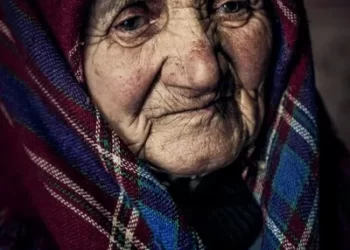Introduction
In advanced sociology, the concept of the conjugal family is a crucial aspect of understanding the dynamics of family structures and relationships. The conjugal family refers to a social unit that is formed through marriage or a similar form of partnership. This type of family is characterized by the presence of a married or cohabiting couple, along with their dependent children, if any. In this blog post, we will delve into the intricacies of the conjugal family, exploring its various forms, functions, and significance in society.
Forms of Conjugal Family
The conjugal family can take on different forms, depending on cultural, historical, and societal factors. Some common forms of conjugal family include:
- Nuclear Family: This is the most prevalent form of the conjugal family, consisting of a married or cohabiting couple and their biological or adopted children. The nuclear family is often considered the basic building block of society.
- Extended Family: In some cultures, the conjugal family extends beyond the nuclear unit to include other relatives such as grandparents, aunts, uncles, and cousins. This form of family structure provides a broader support system and promotes intergenerational bonding.
- Blended Family: Also known as a stepfamily, a blended family is formed when one or both partners have children from previous relationships. This type of conjugal family requires navigating complex dynamics and establishing new relationships.
- Same-Sex Family: With the recognition of same-sex marriages and partnerships, conjugal families can now include same-sex couples and their children. This form challenges traditional notions of gender roles and expands the understanding of family diversity.
Functions of Conjugal Family
The conjugal family serves various functions that are essential for the well-being of individuals and society as a whole. These functions include:
- Reproduction and Socialization: One of the primary functions of the conjugal family is to facilitate reproduction and provide a nurturing environment for the socialization of children. Through the transmission of cultural values, norms, and behaviors, the conjugal family plays a crucial role in shaping the future generations.
- Economic Cooperation: Within the conjugal family, there is often a division of labor, with each partner contributing to the economic well-being of the family unit. This cooperation allows for the pooling of resources and the fulfillment of material needs.
- Emotional Support: The conjugal family provides a source of emotional support and intimacy for its members. Through love, care, and companionship, individuals within the family find comfort, security, and a sense of belonging.
- Social Integration: The conjugal family acts as a social institution that connects individuals to the broader society. It provides a framework for social interaction, cooperation, and the establishment of social roles and responsibilities.
- Identity Formation: The conjugal family plays a crucial role in the formation of individual and collective identities. It shapes an individual’s sense of self, family identity, and cultural belonging.
Significance of Conjugal Family
The conjugal family holds significant importance in society for several reasons:
- Continuity of Society: The conjugal family ensures the continuity of society by producing and socializing the next generation. It provides a stable environment for children to grow and develop, imparting essential values and skills.
- Stability and Emotional Security: The conjugal family offers emotional security and stability to its members. It serves as a support system during challenging times, fostering resilience and well-being.
- Socialization and Cultural Transmission: Through the conjugal family, cultural values, traditions, and knowledge are passed down from one generation to another. This transmission helps maintain cultural heritage and societal cohesion.
- Gender Roles and Equality: The conjugal family reflects and influences gender roles within society. It can either reinforce traditional gender norms or challenge them, promoting equality and empowering individuals within the family unit.
- Adaptability and Flexibility: The conjugal family is adaptable to changing societal norms and needs. It can accommodate diverse family structures and provide a framework for individuals to navigate the complexities of modern life.
Conclusion
The conjugal family is a fundamental social unit that plays a vital role in the functioning of society. It takes various forms and serves multiple functions, ranging from reproduction and socialization to emotional support and social integration. Understanding the significance of the conjugal family allows us to appreciate the complexities of family dynamics and the impact they have on individuals and society as a whole.








